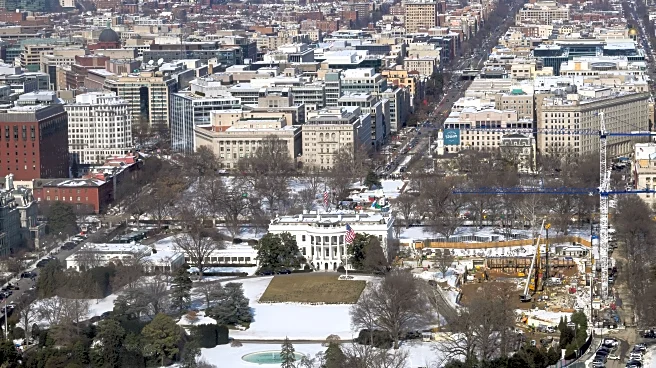Rapid Read • 7 min read
President Trump is set to deploy federal law enforcement officers to Washington, D.C., in response to escalating violence attributed to gangs of youths. This decision follows an incident involving Edward Coristine, a former Department of Government Efficiency staffer, who was attacked by teenagers while attempting to prevent a carjacking near Dupont Circle. The deployment, expected to begin as early as Friday, aims to curb the rising crime rates in the nation's capital. The initiative is part of Trump's 'Making the District of Columbia Safe and Beautiful' executive order, which seeks to enhance safety and reduce illegal activities in the city. The order also involves collaboration with the Metropolitan Police Department to recruit more officers and address fare evasion on public transport.
AD
The deployment of federal law enforcement in Washington, D.C., underscores the administration's commitment to addressing urban crime and ensuring public safety. This move could have significant implications for local governance and law enforcement dynamics, potentially leading to tensions between federal and local authorities. The initiative reflects broader national concerns about youth violence and crime, highlighting the challenges faced by urban centers in maintaining safety and order. The decision may also influence public perception of federal intervention in local matters, impacting political discourse and policy-making at both local and national levels.
The increased federal presence in Washington, D.C., is likely to prompt reactions from local government officials, civil rights groups, and community organizations. Mayor Muriel Bowser's administration may face pressure to address the underlying causes of youth violence and collaborate with federal agencies to implement effective crime reduction strategies. The situation could also lead to legal and political debates over the extent of federal authority in local law enforcement matters. Monitoring the impact of this intervention on crime rates and community relations will be crucial in assessing its effectiveness and shaping future policy decisions.
AD
More Stories You Might Enjoy












